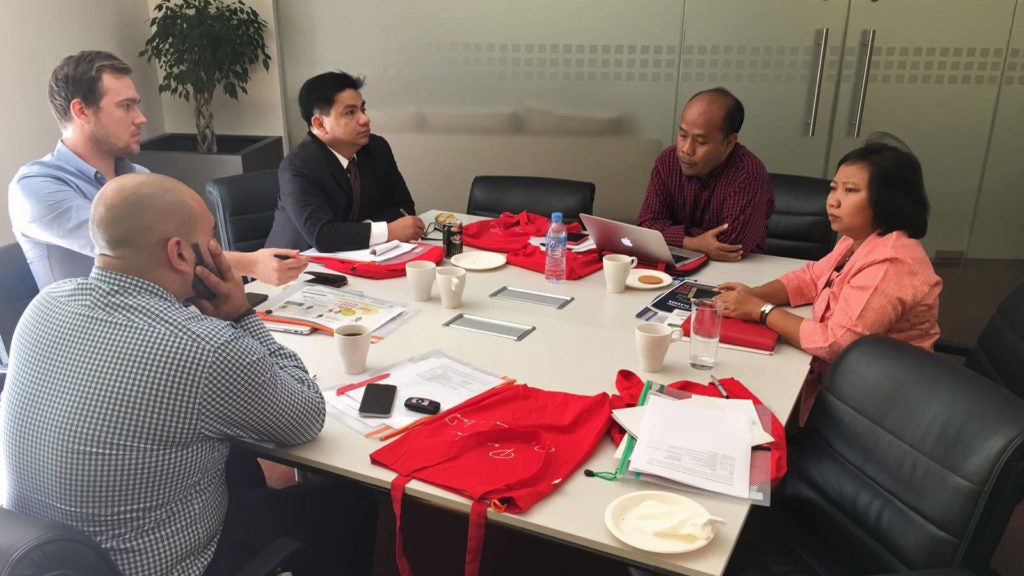Georgetown Hosts Meeting on Rights of Domestic Workers

An event hosted by Georgetown University in Qatar (GU-Q) brought together leading thinkers and migrant rights organizations to discuss ways to improve the situation of domestic workers in Qatar.
Participants from Migrant-Rights.org, Indonesia’s Migrant Care and Hivos met with academics and representatives from local embassies to discuss the work of the ‘Shelter Me’ Project, which aims to improve the circumstances of migrant domestic workers in the country.
The collaborative project, which currently focuses on Indonesian expatriates living in Saudi Arabia and Qatar, hopes to reduce the isolation of domestic workers in society, improve their relationship with their employers and increase transparency in the recruitment of staff. It aims to set up a mobile information and education network to empower migrants, while generating dialogue on how to monitor the situation of workers with the governments concerned.
“We offered to host this meeting at our campus because the situation of migrant workers is important to us,” explained William Hopkirk, Assistant Director – Risk and Compliance at GU-Q. “In line with Georgetown’s value of ‘women and men for others’, we aim to lead the way in looking after worker welfare in Education City.”
Meeting participants discussed progress of the Shelter Me Project to date and outlined plans for the future. Topics discussed included the results of surveys and a focus group held with Indonesian domestic workers in Qatar and employers in Saudi Arabia and Qatar. These findings focused on various aspects of the employer-employee relationship, including the amount of information provided to workers before arrival, and the concerns employers have with hiring staff to work in their personal residences.
Many workers are brought into the region by recruitment agencies, which may not take employer’s job specifications or employees’ qualifications into account when assigning workers. This incompatibility in expectations creates trust issues between employers and employees.
After the event, Georgetown used information gained from the session to produce its own guidelines for hiring domestic helpers, which was shared with GU-Q faculty and staff. It provides a set of ethical and moral standards to help those in the University’s direct and indirect care.
“Projects such as these are important to understand the situation for domestic workers, which are often more vulnerable since they are not as protected by local laws as their countrymen in other industries,” said Hopkirk. “We believe that everyone should get a fair deal.”